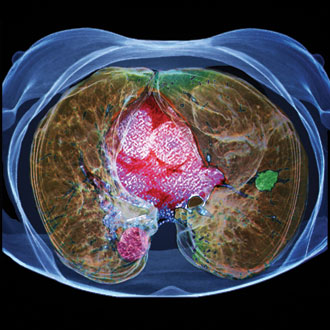GPs refer patients ‘promptly’ for cancer diagnosis, finds nationwide audit

GPs have been found to refer patients with a suspected cancer diagnosis ‘promptly’, according to the largest national audit of cancer diagnoses to date.
The audit, which was backed by Public Health England and Cancer Research UK, found that although GPs on average refer patients within five days of presenting symptoms, 22% still face a delay to their cancer diagnosis that could have been avoided.
The research found that a third of the avoidable delays were due to factors linked to the healthcare system, such as having to wait for a test or an appointment.
The audit used patient data from over 17,000 patients at 439 GP practices, which volunteered to examine their data from 2014 to create a detailed analysis of cancer diagnoses.
GPs have been criticised in the national press for refusing to refer suspected cancer patients because they are fearful of recriminations from commissioning bosses and of upsetting patients.
But RCGP chair Dr Helen Stokes-Lampard said the audit shows GPs are doing a ‘good job’ at referring patients that they suspect have cancer.
She said: ‘It certainly remains the case that GPs in the UK have some of the worst access to diagnostic tools in the community in Europe.
‘We need better access to both existing and emerging tests and imaging tools that could help us identify cancers, particularly those with symptoms that are more difficult to spot – and we need appropriate training for GPs and our teams to use them effectively.’
But she said that the reasons for unavoidable delays ‘were wide-ranging, so whilst they must be addressed, any finger-pointing is not helpful’.
Professor Greg Rubin, professor of general practice at Durham University and lead researcher on the audit, said the report highlights ‘how our health care systems are letting us down’.
He added: ‘It does look as though access to diagnostic tests may still be an issue for GPs and there needs to be a focus on needing better access to diagnostic testing.’
The report comes as the Government announced a new four-week cancer waiting standard from April 2018 in a bid to save an extra 5,000 lives over the next two years.
The target was originally floated two years ago and will replace the current urgent two-week wait referral standard, which is to be phased out.
The research paper said the audit aims to provide ‘a baseline for future audits to assess the impact of the 2015 NICE guidelines’ on cancer.
The 2015 guidelines were said to take a radical new approach to cancer referrals, giving GPs greater freedom to request some ‘direct access’ tests urgently for patients suspected of having cancer.
Speeding up a cancer diagnosis
NHS England first announced an early diagnosis programme in 2015, allowing patients to self-refer themselves for cancer diagnostics without needing to go through a GP.
Later in 2015 the Cancer Taskforce recommended a target of 95% of suspected cancer referrals to get a definitive cancer diagnosis, or have cancer ruled out, within four weeks of GP referral by 2020.
It was also announced that trusts would be offered extra performance incentives this year, to tackle poor achievement of the 62-day treatment target – which has now been missed nationally for the past three years.
Pulse July survey
Take our July 2025 survey to potentially win £1.000 worth of tokens

Visit Pulse Reference for details on 140 symptoms, including easily searchable symptoms and categories, offering you a free platform to check symptoms and receive potential diagnoses during consultations.











